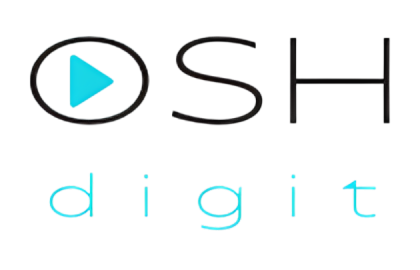Your cart is currently empty!
22. Bibliography

Alves, A. C., & Eira, R. (2015). A aprendizagem implícita do Empreendedorismo no desenvolvimento de projetos interdisciplinares. 8–24.
Alves, A. C., & Leão, C. P. (2015). Action, practice and research in project based learning in an industrial engineering and management program. ASME International Mechanical Engineering Congress and Exposition, Proceedings (IMECE), 5–2015. https://doi.org/10.1115/IMECE2015-51438
Alves, A. C., Moreira, F., Carvalho, M. A., Oliveira, S., Malheiro, M. T., Brito, I., Leão, C. P., & Teixeira, S. (2019). Integrating Science, Technology, Engineering and Mathematics contents through PBL in an Industrial Engineering and Management first year program. Production, 29. https://doi.org/10.1590/0103-6513.20180111
Alves, A. C., Moreira, F., Leao, C. P., & Fernandes, S. (2020a). Ten Years of Positive Feedback on Project-Based Learning From First-Year Engineering Students’ Perspective. ASME International Mechanical Engineering Congress and Exposition, Proceedings (IMECE), 9. https://doi.org/10.1115/IMECE2020-23212
Alves, A. C., Moreira, F., Leao, C. P., & Fernandes, S. (2020b). Ten Years of Positive Feedback on Project-Based Learning From First-Year Engineering Students’ Perspective. ASME International Mechanical Engineering Congress and Exposition, Proceedings (IMECE), 9. https://doi.org/10.1115/IMECE2020-23212
Alves, A. C., Moreira, F., Leao, C. P., & Teixeira, S. (2017). Tutoring experiences in PBL of industrial engineering and management program: Teachers vs students. ASME International Mechanical Engineering Congress and Exposition, Proceedings (IMECE), 5. https://doi.org/10.1115/IMECE2017-71306
Alves, A. C., Moreira, F., Lima, R., Sousa, R., Dinis-Carvalho, J., Mesquita, D., Fernandes, S., & Van Hattum-Janssen, N. (2012). Project based learning in first year, first semester of industrial engineering and management: Some results. ASME International Mechanical Engineering Congress and Exposition, Proceedings (IMECE), 5, 111–120. https://doi.org/10.1115/IMECE2012-89046
Alves, A. C., Moreira, F., & Sousa, R. M. (2007). O papel dos tutores na aprendizagem baseada em projectos: três anos de experiência na Escola de Engenharia da Universidade do Minho. Libro de Actas Do Congreso Internacional Galego-Portugués de Psicopedagoxía. A.Coruña/Universidade Da Coruña: Revista Galego-Portuguesa de Psicoloxía e Educación., 1, 1759–1770. http://repositorium.sdum.uminho.pt/handle/1822/18278
Alves, A., Sousa, R., Moreira, F., Alice Carvalho, M., Cardoso, E., Pimenta, P., Malheiro, M. T., Brito, I., Fernandes, S., & Mesquita, D. (2016). Managing PBL difficulties in an industrial engineering and management program. Journal of Industrial Engineering and Management, 9(3), 586–611. https://doi.org/10.3926/jiem.1816
Dewey, J. (1916). Democracy and Education: An Introduction to the Philosophy of Education. 434. http://books.google.com/books?id=tfUvXujrJHEC&pgis=1
Education 2030: Incheon Declaration and Framework for Action for the implementation of Sustainable Development Goal 4: Ensure inclusive and equitable quality education and promote lifelong learning opportunities for all; 2016. (2016).
Fernandes, S. (2021). Project-Based Learning: implementação no primeiro ano de um curso de Engenharia. In Project-Based Learning: implementação no primeiro ano de um curso de Engenharia. UMinho Editora. https://doi.org/10.21814/uminho.ed.26
Fernandes, S., Mesquita, D., & Lima, R. et al. (2009). The impact of peer assessment on teamwork and student evaluation. Innovation and Assessment of Engineering Curricula, 125–136.
Howe, E. R., & Watson, G. C. (2021). Finding Our Way Through a Pandemic: Teaching in Alternate Modes of Delivery. Frontiers in Education, 6, 187. https://doi.org/10.3389/FEDUC.2021.661513/BIBTEX
L. Earl, & S. Kartz. (2006). Rethinking Classroom Assessment with Purpose in Mind. Manitoba Education.
Lima, R. M., Carvalho, D., Assunção Flores, M., & van Hattum-Janssen, N. (2007). A case study on project led education in engineering: students’ and teachers’ perceptions. European Journal of Engineering Education, 32(3), 337–347. https://doi.org/10.1080/03043790701278599
Lima, R. M., Fernandes, S., Mesquita, D., & Sousa, R. M. (2009). Learning Industrial Management and Engineering in Interaction with Industry. First Ibero-American Symposium on Project Approaches in Engineering Education – PAEE2009, 219–227. https://www.researchgate.net/publication/270823411_Learning_Industrial_Management_and_Engineering_in_Interaction_with_Industry
Mesquita, D., Lima, R. M., & Flores, M. A. (2013). Developing professional competencies through projects in interaction with companies: A study in Industrial Engineering and Management Master Degree. Fifth International Symposium on Project Approaches in Engineering Education (PAEE’2013): Closing the Gap between University and Industry, 2000, [1-7]ID103.
Moreira, F., Mesquita, D., & Hattum-Janssen, N. (2011). The importance of the project theme in project-based learning: a study of student and teacher perceptions. International Symposium on Project Approaches in Engineering Education (PAEE’2011): Aligning Engineering Education with Engineering Challenges, 31–35. https://repositorium.sdum.uminho.pt/handle/1822/14952%0Ahttp://repositorium.sdum.uminho.pt/
Powell, P. C. (2004). Assessment of team-based projects in project-led education. European Journal of Engineering Education, 29(2), 221–230. https://doi.org/10.1080/03043790310001633205
Powell, Peter Weenk, W. (2003). Project‐led engineering education. Lemma Publishers.
Reis, A. C. B., Barbalho, S. C. M., & Zanette, A. C. D. (2017). A bibliometric and classification study of Project-based Learning in Engineering Education. Production, 27(Special Issue), e20162258. https://doi.org/10.1590/0103-6513.225816
-
20. Student’s perception and feedback about the evaluation
The 21st-century competencies are different considering that with COVID-19 digitalization was boosted what brings the necessity to acquire new ones and re-evaluate teaching strategies, particularly because of the unpredictable situations related to relating to those times and the type of teaching context- online (Howe & Watson, 2021). The 4 most reported are: critical thinking/problem-solving; creativity;…
-
21. Resources

Resources can be physical or digital. A set of tools that can be used in the different approaches to problem-solving in the different phases will be supplied. Students should use several reputable platforms to substantiate their research, but they can also use physical resources generally used in interacting with labour environments, like equipment and “paper-pencil”…
-
22. Bibliography

Alves, A. C., & Eira, R. (2015). A aprendizagem implícita do Empreendedorismo no desenvolvimento de projetos interdisciplinares. 8–24. Alves, A. C., & Leão, C. P. (2015). Action, practice and research in project based learning in an industrial engineering and management program. ASME International Mechanical Engineering Congress and Exposition, Proceedings (IMECE), 5–2015. https://doi.org/10.1115/IMECE2015-51438 Alves, A. C.,…
